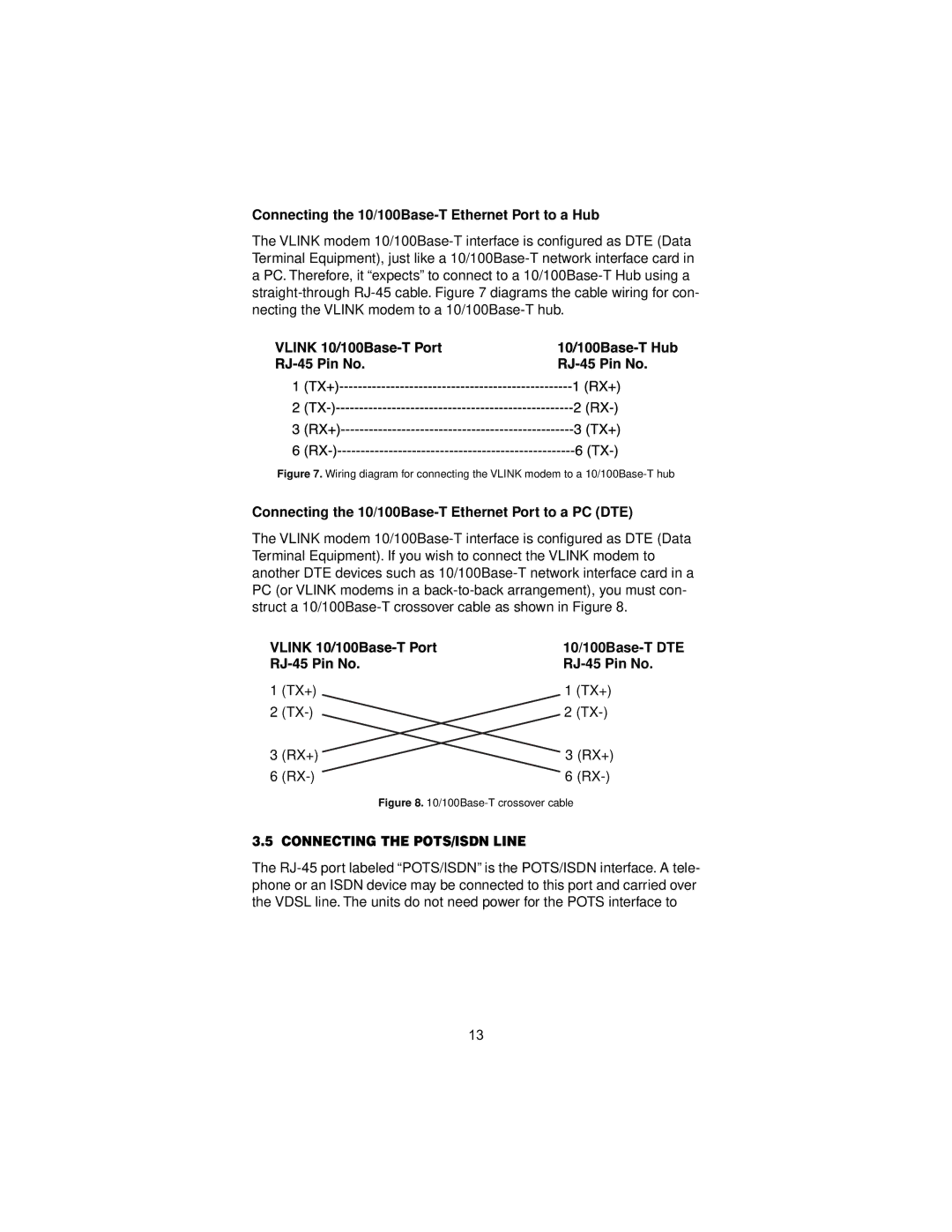
Connecting the 10/100Base-T Ethernet Port to a Hub
The VLINK modem 10/100Base-T interface is configured as DTE (Data Terminal Equipment), just like a 10/100Base-T network interface card in a PC. Therefore, it “expects” to connect to a 10/100Base-T Hub using a straight-through RJ-45 cable. Figure 7 diagrams the cable wiring for con- necting the VLINK modem to a 10/100Base-T hub.
Figure 7. Wiring diagram for connecting the VLINK modem to a 10/100Base-T hub
Connecting the 10/100Base-T Ethernet Port to a PC (DTE)
The VLINK modem 10/100Base-T interface is configured as DTE (Data Terminal Equipment). If you wish to connect the VLINK modem to another DTE devices such as 10/100Base-T network interface card in a PC (or VLINK modems in a back-to-back arrangement), you must con- struct a 10/100Base-T crossover cable as shown in Figure 8.
| | | 10/100Base-T DTE |
| | |
| | | RJ-45 Pin No. |
1 | (TX+) | 1 (TX+) |
2 | (TX-) | 2 (TX-) |
3 | (RX+) | 3 (RX+) |
6 | (RX-) | 6 (RX-) |
Figure 8. 10/100Base-T crossover cable
3.5 CONNECTING THE POTS/ISDN LINE
The RJ-45 port labeled “POTS/ISDN” is the POTS/ISDN interface. A tele- phone or an ISDN device may be connected to this port and carried over the VDSL line. The units do not need power for the POTS interface to

